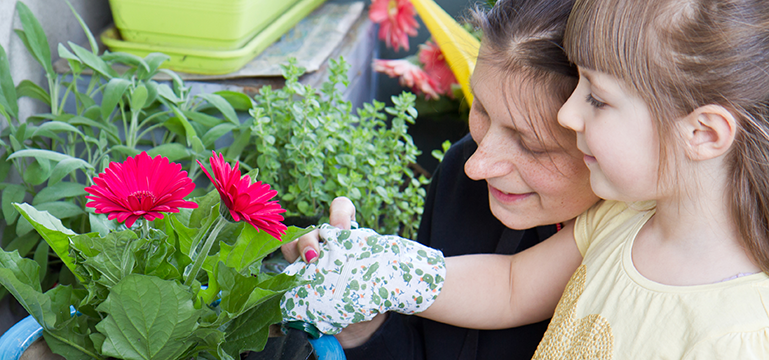Parental engagement sessions promote continuity in children’s learning experiences

Quick links:
Information about the setting
Tiny Tots Malpas Road is one of three nursery settings, two based in Newport local authority and one situated in Abergavenny in Monmouthshire. Tiny Tots Malpas was established in February 1997 and has been trading as a private day care setting for 23 years. The nursery is privately owned and is based in a large converted house that has been adapted to suit the needs of a nursery, over two floors. Families are mainly from working backgrounds with English being the first language. The setting operates five days a week, 52 weeks a year from 8:00 to 18:00. It is registered to care for 64 children per day aged from birth to 12 years old.
Context and background to the effective or innovative practice
The setting’s main aim in running parental engagement sessions is to give parents the opportunity to see what their children do at nursery, and help them become more involved in their children’s learning and development. The sessions give parents confidence and a better understanding of different things they could do to support their children’s learning at home. Staff provide good opportunities for parents to get to know them better, as they discuss what happened when they were doing the home tasks and share ideas for other activities and next steps in learning. The sessions help to promote continuity in children’s learning experiences between the home and the setting. This adds to the impact of activities children enjoy in the setting and strengthens their learning.
Description of nature of strategy or activity
Practitioners run the parental engagement sessions during nursery opening times. There are two different themed sessions per term. The sessions are run by two members of staff in a separate room in the nursery. Children and parents take part in the activities together. There is a clear action plan for each session, so all staff are aware of the aims and intended outcomes. The setting plans the session to fit in with parents’ working patterns as far as possible. For example, it offers morning and afternoon sessions and runs sessions on different days over the term. It considers any health and safety issues, and makes sure that it meets the needs of children not taking part in the sessions. Parental engagement sessions include woodwork, music and movement, physical literacy sessions, Welsh and cooking.
Each session runs for three quarters of an hour. Practitioners introduce a skill, and children practise it alongside their parents, such as learning how to throw underarm during the session on ball skills. There is also an opportunity for children to show parents and families what they have been learning throughout the term. Practitioners have noticed that parents become more involved in the sessions as their confidence improves, and they use their new-found confidence to continue to practise the skills with their children at home.
At the end of each session, staff ask all parents to complete a feedback form, detailing what they enjoyed, what could be improved, and ideas for future sessions. When the sessions are planned, practitioners listen well to suggestions from parents and consider their observations of children’s interests carefully. They make the most of parents’ skills and staff expertise wherever possible, to widen children’s aspirations and experiences. For example, parents who are doctors, gardeners and members of the armed forces have contributed to sessions. Staff with a particular expertise lead sessions in music and movement, physical literacy and Welsh.
What impact has this work had on provision and children’s standards?
These sessions have created stronger bonds between families and staff, and parents have a better understanding of what learning in nursery looks like. This supports the wellbeing of parents and children and contributes to the nurturing ethos of the setting.
Parents are able to see children in the nursery environment working with staff and watch their skills develop. The children’s and parents’ confidence have grown throughout the sessions and more parents now become more involved in the sessions and will take the lead where appropriate.
Involving parents strengthens children’s skills development effectively. For example, children’s Welsh language skills improved following the parental engagement session, where parents joined in the learning and took resources home to practise with their children.
How have you shared your good practice?
The setting plans to host Practice Worth Sharing events in the summer of 2020.